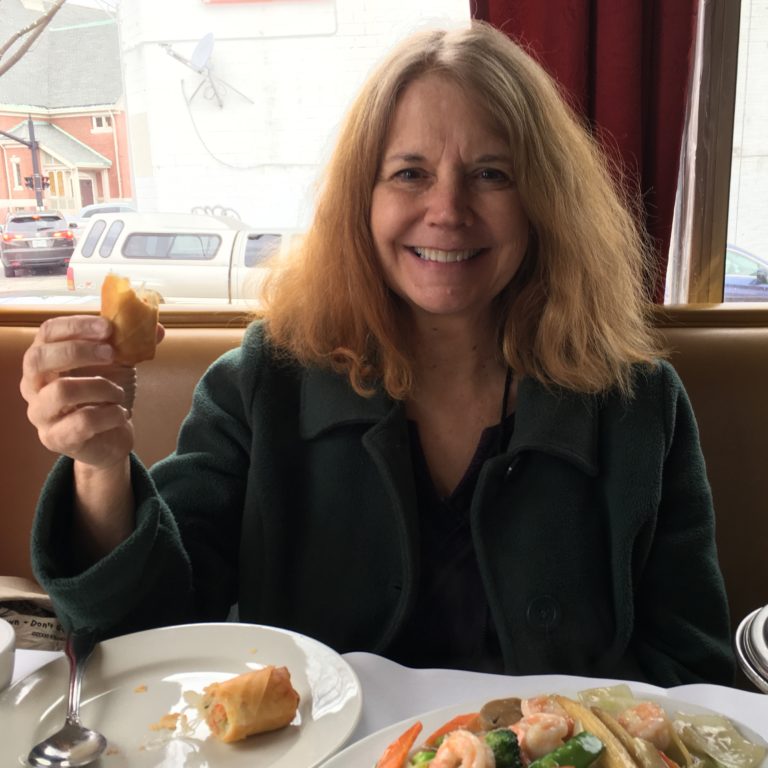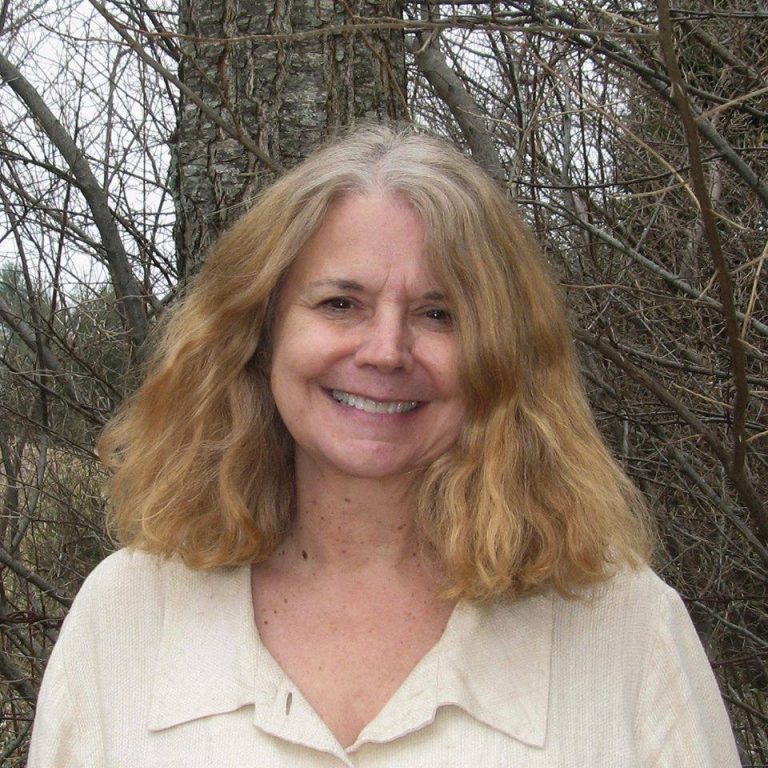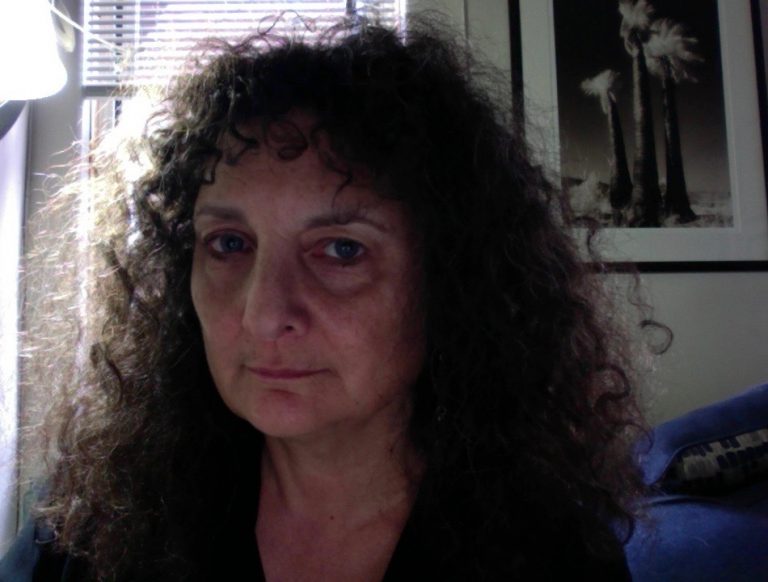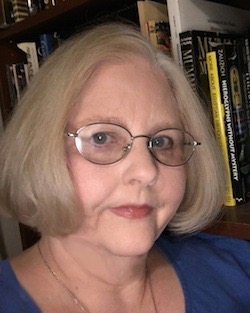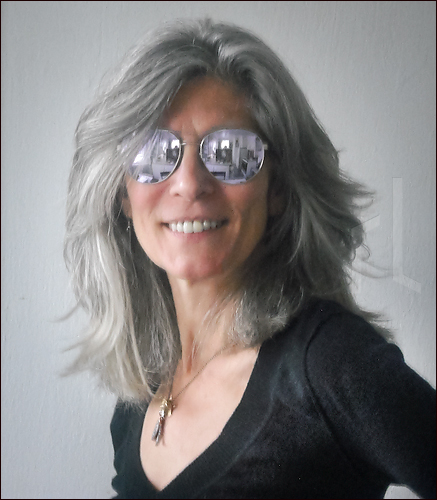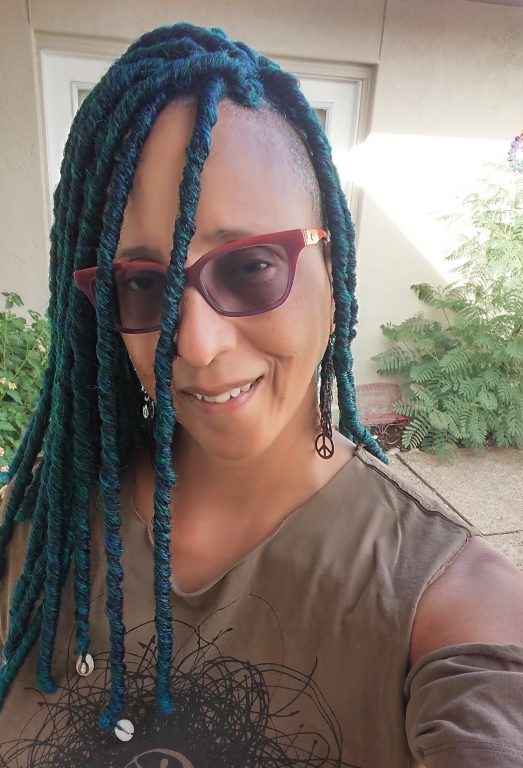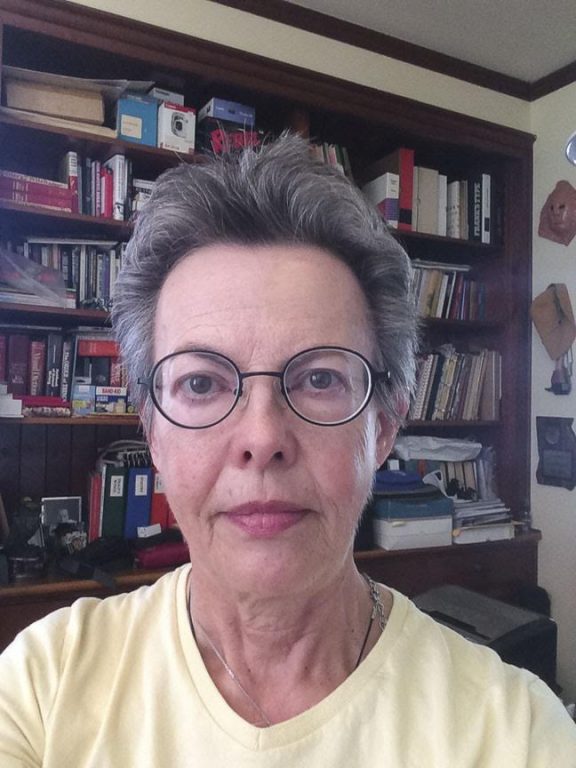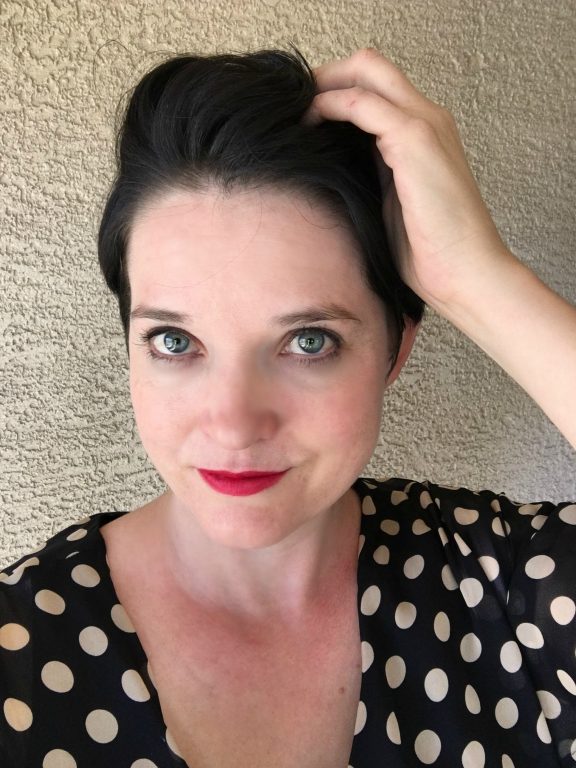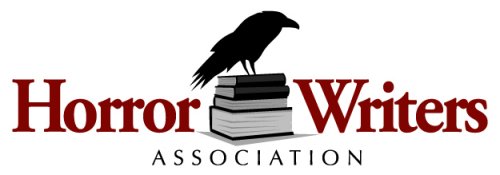
The Horror Writers Association today announced the winners of the 2022 HWA Lifetime Achievement and special awards: the Specialty Press Award, the Richard Laymon President’s Award, the Silver Hammer Award, and the Mentor of the Year Award. These will be presented June 17 at StokerCon®2023 in Pittsburgh, PA.
LIFETIME ACHIEVEMENT AWARD. The recipients of the HWA’s Lifetime Achievement Award are Elizabeth Massie, Nuzo Onoh, and John Saul.
HWA presents the Lifetime Achievement Award to an individual whose work has substantially influenced the horror genre. While this award is often presented to a writer, it may also be given for influential accomplishments in other creative fields.
The Lifetime Achievement Award is the most prestigious of all awards presented by HWA. It does not merely honor the superior achievement embodied in a single work. Instead, it is an acknowledgment of superior achievement in an entire career.
Elizabeth Massie
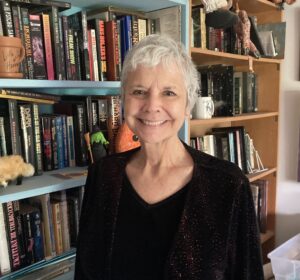
Elizabeth Massie, whose first horror story, “Whittler,” was published by The Horror Show magazine back in the primitive days of 1984, is a two-time Bram Stoker Award-winning and Scribe Award-winning author of horror novels, novellas, short fiction, media-tie ins, poetry, and nonfiction. A seventh grade life science teacher until 1991, she then took the plunge into full-time writing. Over the years she has been published by Simon & Schuster, Berkley, Pocket Books, Harper, Leisure, Pan, Crossroad Press, and many others. Her novels and collections include Sineater, Hell Gate, Desper Hollow, Wire Mesh Mothers, Homeplace, Naked on the Edge, Dark Shadows: Dreams of the Dark (co-authored with Mark Rainey), Versailles, Buffy the Vampire Slayer: Power of Persuasion, It Watching, Afraid, Madame Cruller’s Couch and Other Dark and Bizarre Tales, The Great Chicago Fire. She is also the creator of the Ameri-Scares series of spooky, middle-grade novels, which was optioned for television by Warner Horizon in 2021. Beth’s short fiction has been included in countless magazines and anthologies, including several years’ best publications. She lives in the Shenandoah Valley of Virginia with her husband, artist/illustrator and Theremin-player Cortney Skinner. When not writing she knits, goes geocaching, spends time chilling at Starbucks, and seeks out locations she’s never visited before. If she can find the remains of a crumbling, abandoned amusement park, all the better.
Nuzo Onoh
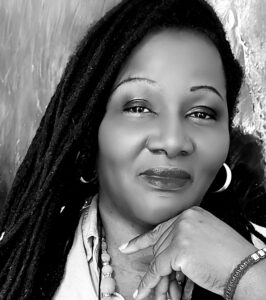
Nuzo Onohis a Nigerian-British writer of Igbo descent. She is a pioneer of the African horror literary genre. Hailed as the “Queen of African Horror”, Nuzo’s writing showcases both the beautiful and horrific in the African culture within fictitious narratives.
Nuzo’s works have been featured in numerous magazines and anthologies. She has given talks and lectures about African Horror, including at the prestigious Miskatonic Institute of Horror Studies, London. Her works have appeared in academic studies and been longlisted and shortlisted.
Nuzo holds a Law degree and a Master’s degree in Writing, both from Warwick University, England. She is a certified Civil Funeral Celebrant, licensed to conduct non-religious burial services. An avid musician with an addiction to Jungyup and K-indie, Nuzo plays both the guitar and piano and holds an NVQ in Digital Music Production. She resides in the West Midlands, United Kingdom.
John Saul
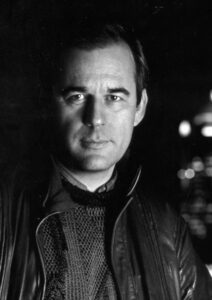
John Saul was born in 1942 in Southern California and grew up in Whittier, California. Jack and Betty Saul were his parents, and he had a sister, Helen, who was two years older. He was in Seventh Grade when his English teacher told him he should consider writing as a career. John attended four colleges, studying Theater and Anthropology. He wrote plays, short stories, poetry and eventually novels. Though he enjoyed writing humor, John’s first novel was purchased by Dell Publishing to compete in the rapidly expanding thriller market of the late 1970s. With the immediate success of SUFFER THE CHILDREN, he was off and running. John’s partner (now husband) of 47 years, Mike Sack, helped with book ideas and plotting. When they first met, Mike was a clinical psychologist at a state hospital and shared his experiences with John. Both Mike and John helped organize and taught at the Maui Writers Conference and School. His third novel, CRY FOR THE STRANGERS, was made into a TV movie, and all of John’s books have been published in over 35 countries worldwide and millions have been sold.
SPECIALTY PRESS AWARD
The recipient of the Specialty Press Award is Undertow Publications. The HWA Specialty Press Award is presented periodically to a specialty publisher whose work has substantially contributed to the horror genre, whose publications display general excellence, and whose dealings with writers have been fair and exemplary.
Undertow Publications

“I am extremely grateful to be receiving the H.W.A. Specialty Press Award. To be honored and recognized by my peers in this way is truly unexpected. I am pleased beyond words, and giddy with joy. Thank you! The warmth and support from the horror community has been overwhelming. I am indebted to you all.” – Michael Kelly, Founder/Editor-in-Chief
Undertow Publications began in 2009 with the goal of proving that speculative and literary fiction could coexist in the same strata, and that modes of writing shouldn’t be judged by their genre but by their literary aesthetic. Literary spec-fic is what we aspire to. Our first publication, “Apparitions,” an anthology of literary ghost stories, garnered a Shirley Jackson Award nomination. Since then we’ve won 2 Shirley Jackson Awards; a British Fantasy Award, and are 5-time World Fantasy Award finalists. We have been profiled in the Globe and Mail, the Toronto Star, and Wall Street Journal.
We crave stories of human relationships. The stories we publish explore human identity and the global, cultural, and natural influences that connect and shape us. No matter the setting, it’s vital to us to publish real stories of real people – their struggles; their triumphs. Fiction holds a mirror to the common world and helps us understand. It makes us feel. And it entertains. Often, that’s enough.
Undertow Publications continues to push against genre prejudice; publishing a diverse cross-section of authors, and continues to prove that horror and speculative fiction is not a pejorative.
THE RICHARD LAYMON PRESIDENT’S AWARD
The recipient of the Richard Laymon President’s Award for Service is Meghan Arcuri.
The Richard Laymon President’s Award for Service was instituted in 2001 and is named in honor of Richard Laymon, who died in 2001 while serving as HWA’s President. As its name implies, it is given by HWA’s sitting President.
The award is presented to a volunteer who has served the HWA in an especially exemplary manner and has shown extraordinary dedication to the organization.
Meghan Arcuri
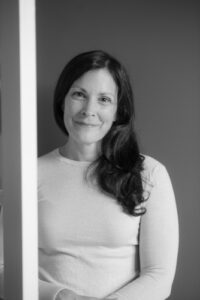
Meghan Arcuri is a Bram Stoker Award®-nominated author. Her work can be found in various anthologies, including Borderlands 7 (Borderlands Press), Madhouse (Dark Regions Press), Chiral Mad, and Chiral Mad 3 (Written Backwards). She is currently the Vice President of the Horror Writers Association.
Prior to writing, she taught high school math, having earned her B.A. from Colgate University—with a double major in mathematics and English—and her masters from Rensselaer Polytechnic Institute.
She lives with her family in New York’s Hudson Valley.
The Karen Lansdale Silver Hammer Award
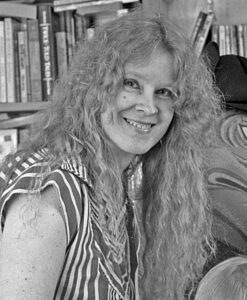
The recipient of the Karen Lansdale Silver Hammer Award is Karen Lansdale.
In 2022, the Horror Writers Association renamed the Silver Hammer Award to the Karen Lansdale Silver Hammer Award in honor of the tremendous amount of work Karen did starting the HWA.
HWA has also updated the physical award. Instead of a hammer, a new stylized sculpture has been designed and cast by the same company that mints the Bram Stoker Award statues. The new design will be shared at StokerCon2023.
The HWA periodically gives the Karen Lansdale Silver Hammer Award to an HWA volunteer who has done a truly massive amount of work for the organization, often unsung and behind the scenes. It was instituted in 1996, and is decided by a vote of HWA’s Board of Trustees.
The award is so named because it represents the careful, steady, continuous work of building HWA’s “house” — the many institutional systems that keep the organization functioning on a day-to-day basis.
Mentor of the Year Award
The recipient of the Mentor of the Year Award is David Jeffery.
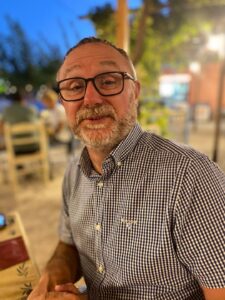
The HWA’s Mentor Program is available to all members of the organization. This popular program pairs newer writers with established professionals for an intensive four-month-long partnership. For new writers, the Program offers mentees a personal, one-on-one experience with a seasoned writer, tailor-made to help them grow in their writing and better market their work. For experienced writers, it is an opportunity to pay forward the assistance and encouragement other writers gave them when they were starting out. In addition, there is the added benefit of growing as a writer oneself through the act of teaching others. In short, the Program benefits all who participate, regardless of their roles.
Established in 2014, the Mentor of the Year Award recognizes one mentor in the Program who has done an outstanding job of helping new writers. The award is chosen by the current manager of the Program.
[Based on a press release.]

